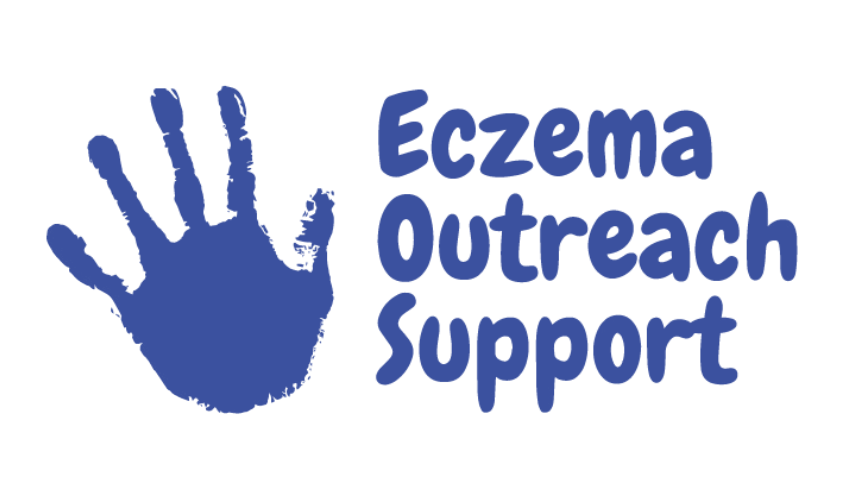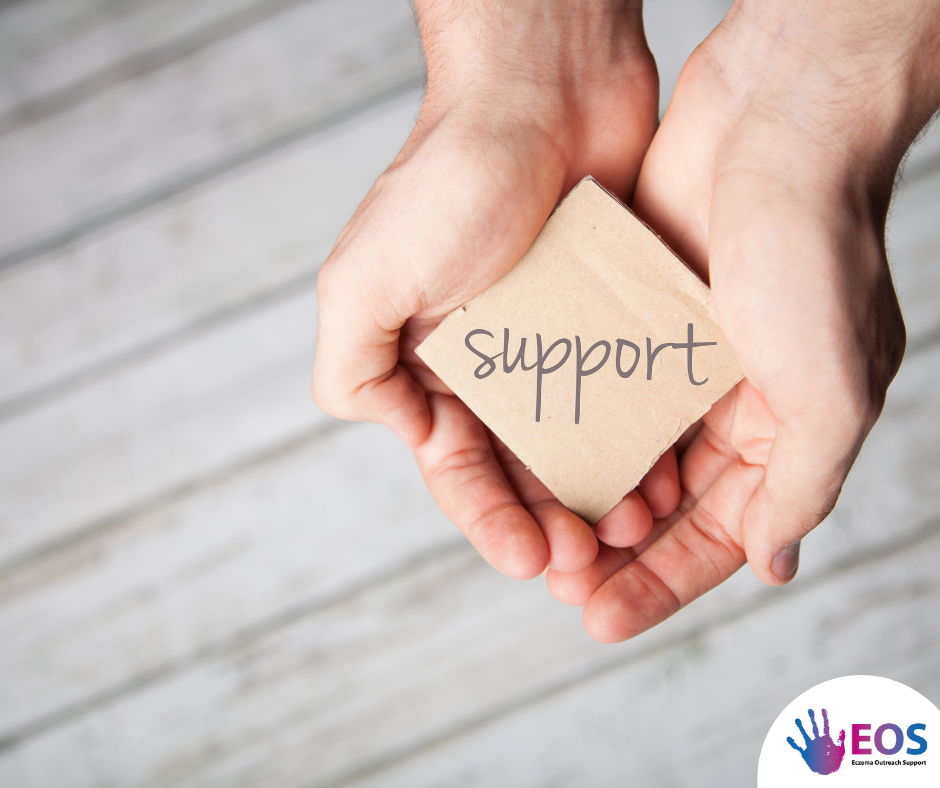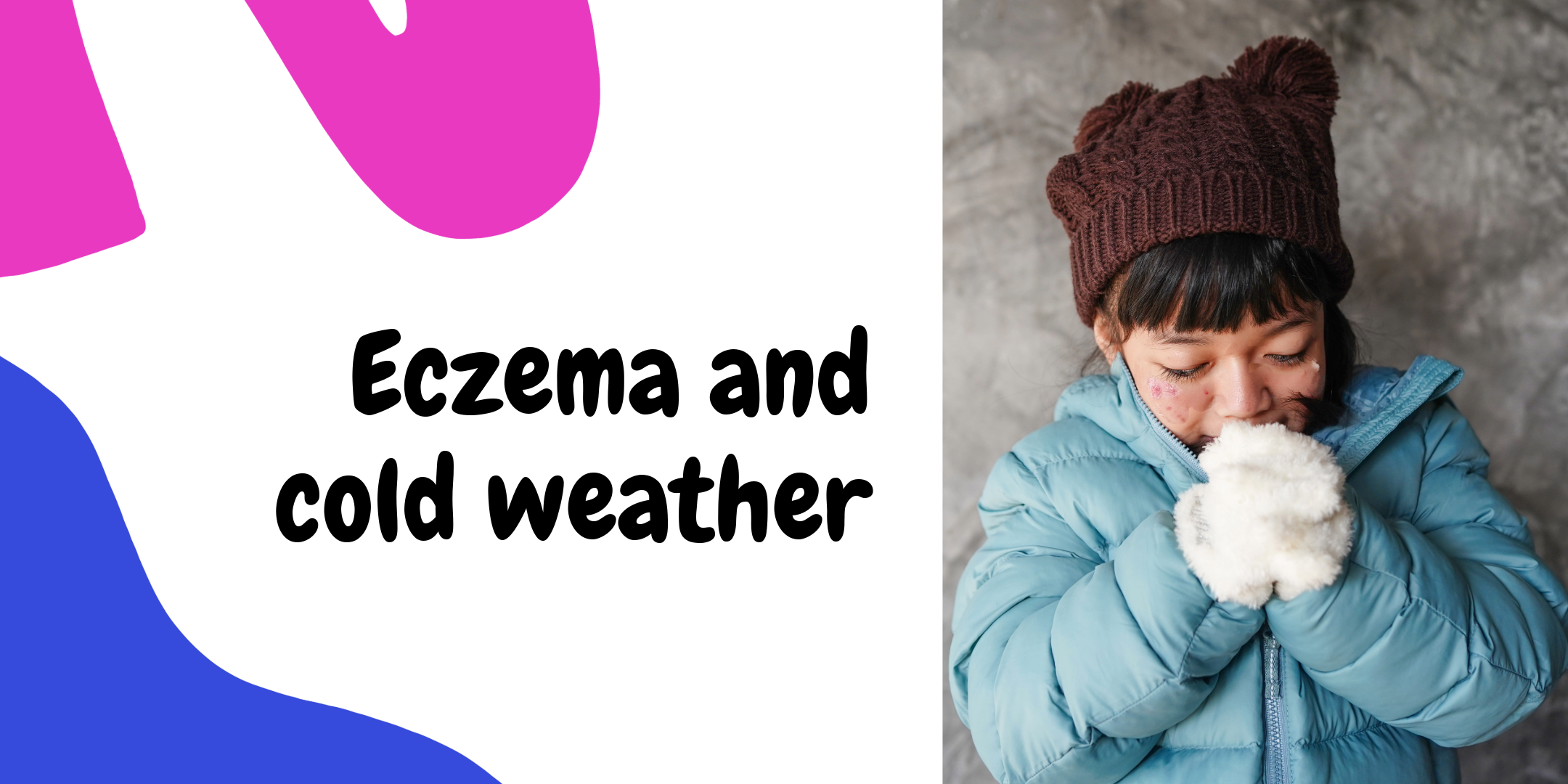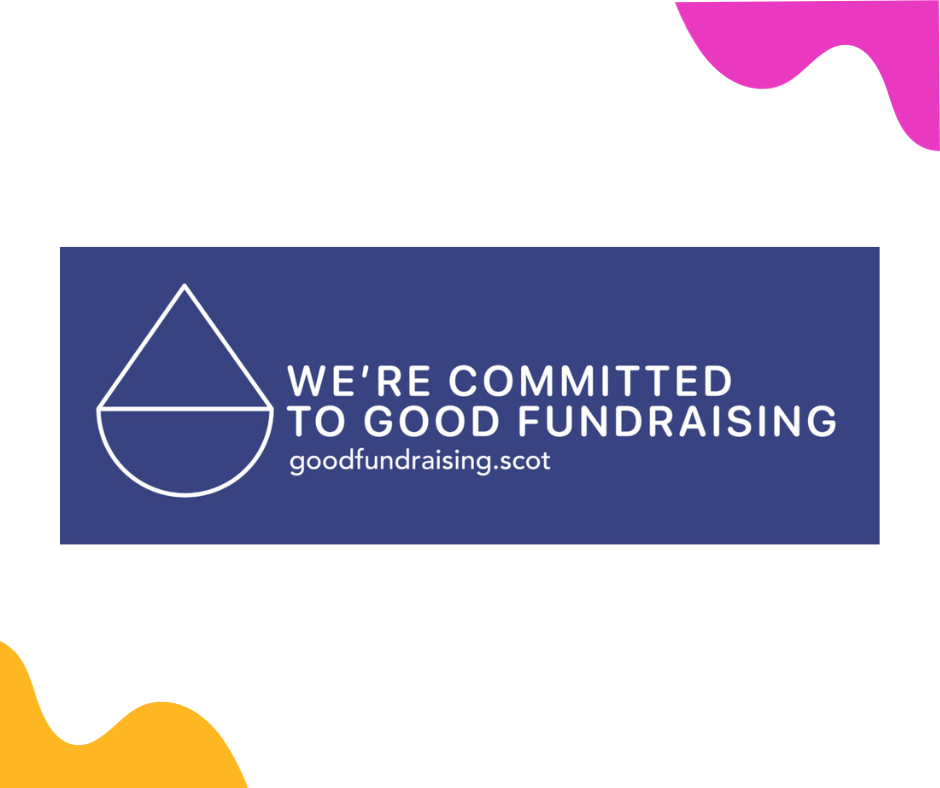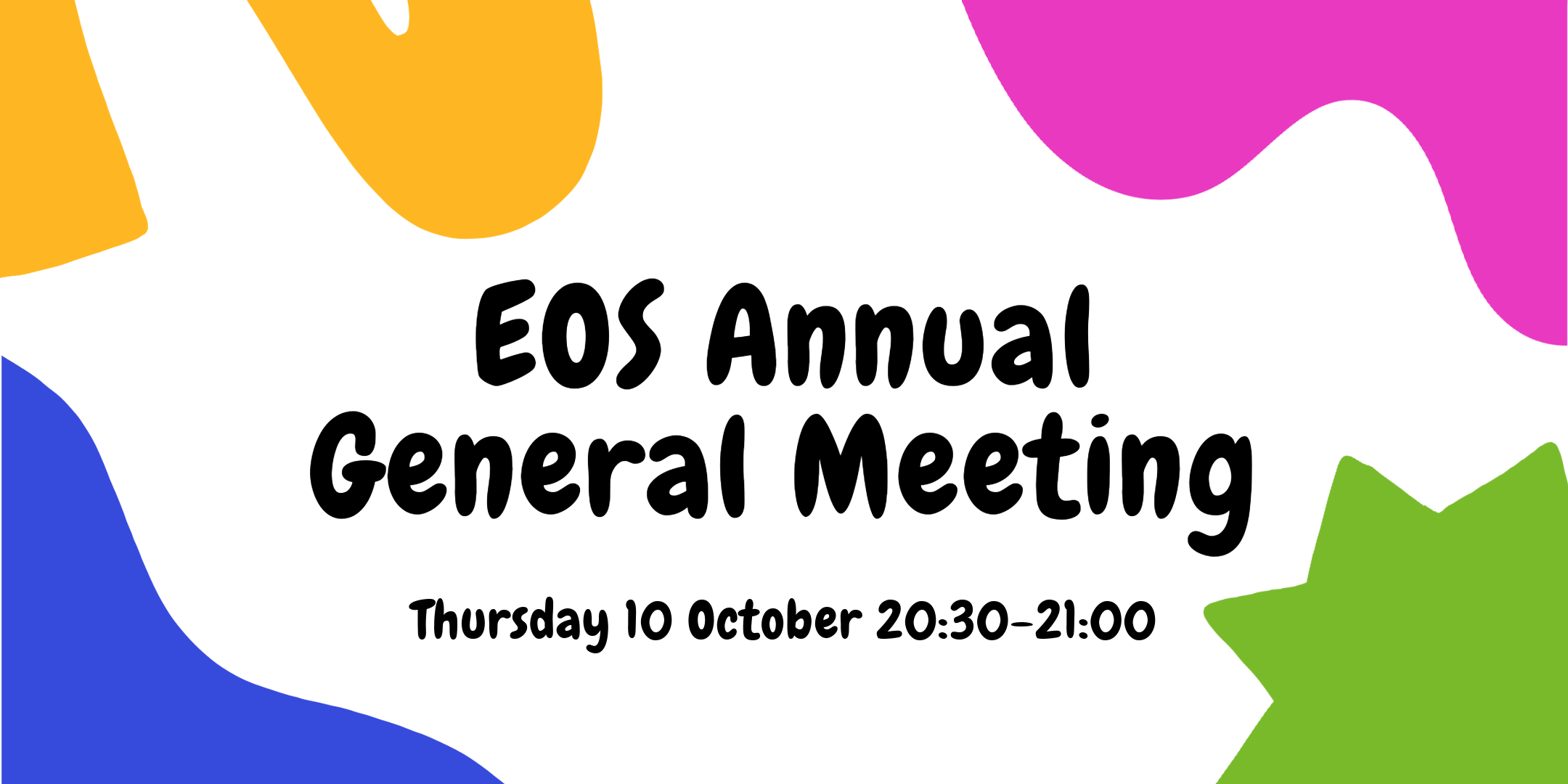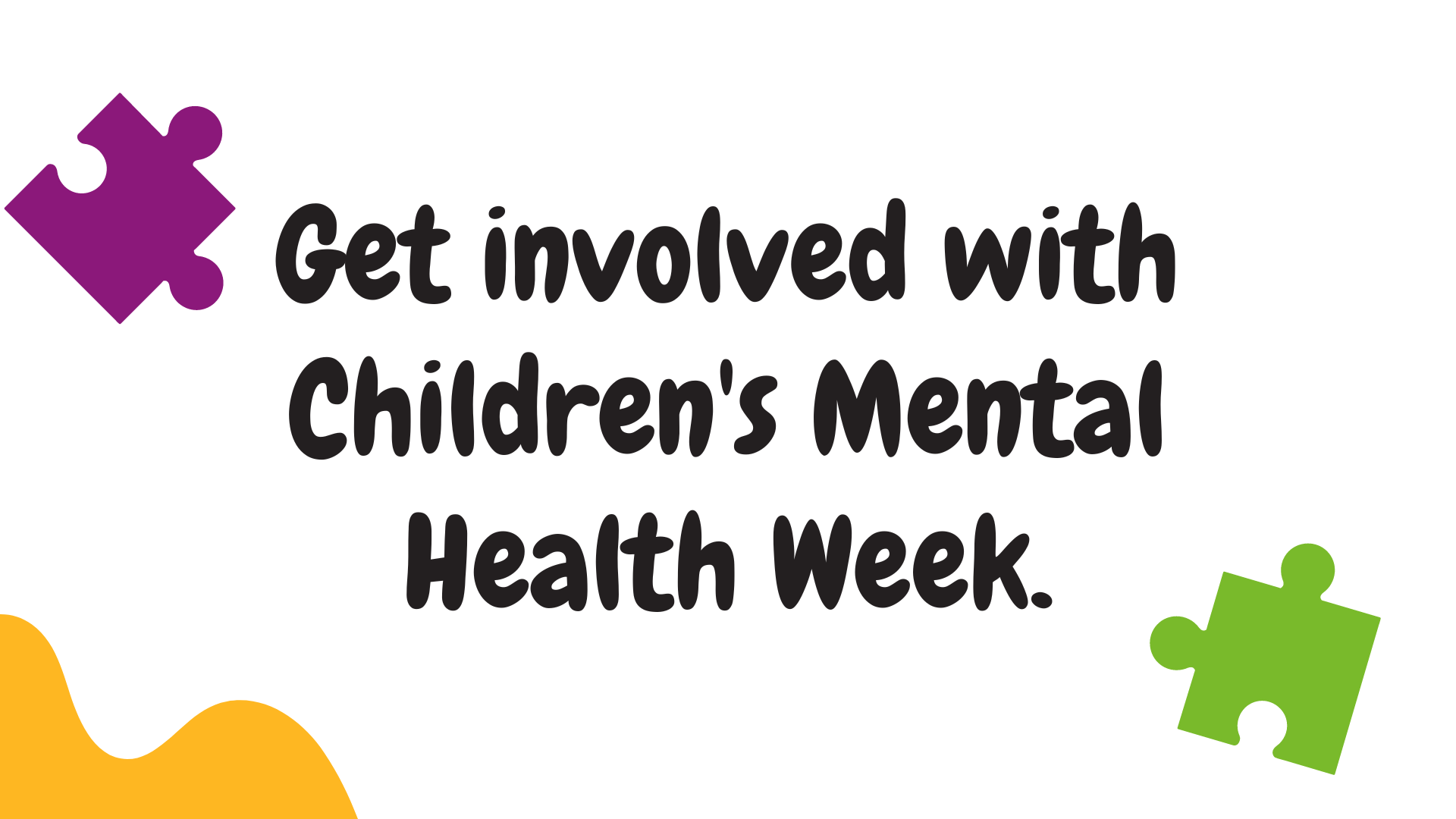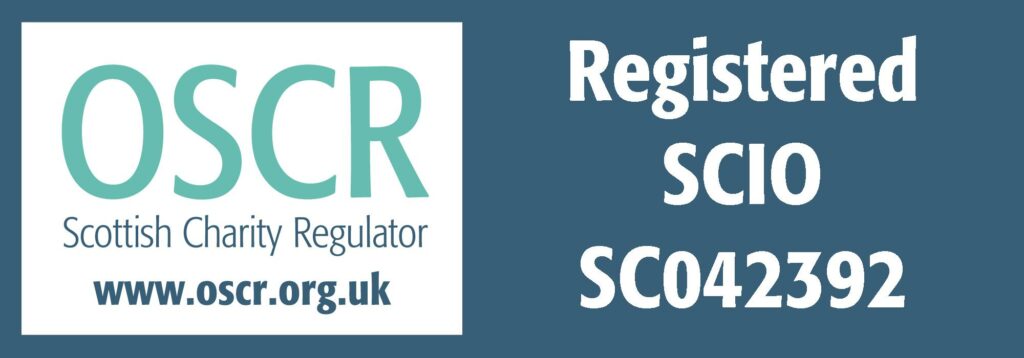A psychology student investigated the impact eczema can have on young adults and found the importance of having support.
MSc Health Psychology student, Charlotte Tanner, investigated the impact that eczema has on young adults. This was part of her dissertation project at the University of the West of England. Charlotte was supervised by Nick Sharratt from the Centre for Appearance Research (CAR) and, as part of Charlotte’s MSc, she also spent some time working on other projects with Ella Guest, also of CAR.
Charlotte’s findings are below and make interesting reading.
What we did
Charlotte interviewed 8 young adults (aged 20-29, 7 women and 1 man) with eczema asking
about the impact of their condition on their life. Before the interviews, the participants
were asked to take 4-10 photos to discuss in the interviews. She then transcribed and analysed the interviews, using a method called ‘Thematic Analysis.’
This involves searching for patterns of meaning and common experience in what was said.
Significant topics, or themes, that came up in discussion included hiding their eczema, the
constant itch caused by eczema and the importance of supportive family and friends, among
others.
Why we did it
Most of the previous research on eczema is based on children’s experiences. We wanted to
investigate the impact eczema has on individuals when symptoms continue into adulthood.
We wanted to see if eczema affects individuals in different ways as they mature and what
can make having eczema a little easier.
What we found
We found that many of the participants discussed similar things concerning the impact that
eczema has on their lives. Three topics that stood out for all individuals were the desire to
keep their eczema hidden, consequences of constantly feeling itchy and the importance of
having support and understanding from those closest to themKeeping it hidden
Many participants expressed that their ability to hide their eczema affected how self conscious and distressed they felt. They often described disliking the look of their eczema
and were apprehensive of how other people might react. Participants describe feeling the
desire to hide it or disguise it to avoid drawing unwanted attention from others.
“It does make me a bit more self-conscious especially if it’s on my face. Hands and arms, you
can just sort of cover-up or it’s not as noticeable” Elis (these are pseudonyms, not real
names)
So what?
Our research has shown that participants experienced emotional and physical challenges
when it came to their eczema. They had to take steps to deal with these symptoms daily, but the understanding and support of others were invaluable in both respects. It is
important that we create awareness and educate others on skin conditions and their
associated challenges as it can help change misconceptions about eczema. Striving to
celebrate diversity in appearance could increase acceptance and understanding for
individuals with eczema, improving their outlook on their condition and sense of belonging
in society.
In depth
Participants discussed how they choose not to wear dark colours as it would make their
flaky skin more noticeable, illustrating this in the photos they took.
“I can’t wear black tops and stuff. Obviously, the slightest touch would mean I would have
skin flakes everywhere. I’d instantly feel gross and dirty and frantically shake it off” Erin
Jess, however, talked about how it was worse when her symptoms were not visible as
others did not know how much her eczema was affecting her.
“I think anywhere that’s visible, clearly I just don’t like it being on show, but if it’s underneath
it’s even worse because then they don’t have a clue how uncomfortable you are” Jess
The Itch
All interviewees spoke about the psychological impact of having a constant itch. They
explained there was often no respite which “makes you feel like you are going crazy”
(Anna). It impaired their concentration and could make their emotions run high.
“When you try and explain how deep the itch is like it’s bone-deep like it’s distracting. You
can’t do anything or think about anything else” (Sophia)
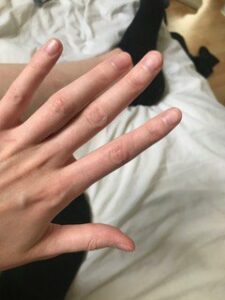
Participants discussed how they had to cut their fingernails, to prevent
damaging their skin in their sleep despite disliking the appearance of short nails. They
expressed how they felt they had to compromise an aspect of their femininity to protect
their skin.
“I have to keep them very short and I look like a stubby man and I don’t like it. I love it when I
have longer nails I feel like a woman” Amy
The participants spoke about the other things they did to stay on top of the physical
consequences of eczema, like the itch. These practices appeared to be motivated by their
desire to keep their eczema hidden from others and to gain control of their eczema
symptoms.
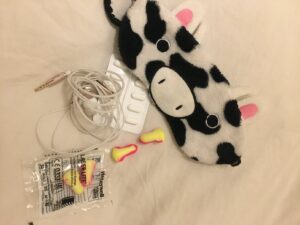
“I realised how much of my bag was kind of dedicated to skincare or eczema. 80% of my
handbag is like eczema” (Sophia)
Anna similarly had an assortment of things that helped her deal with her eczema symptoms
so she could fall asleep at night a little easier.
“These are all my sleeping paraphernalia for when I’m having a difficult time sleeping” Anna
Compassionate and supportive relationships
All our participants spoke of the positive impact and importance of having a supportive
social circle. “I think it’s really important that you have at least one person that you can just
to be like oh I’m having a really bad skin day today.” (Katie). Having someone to confide in
helped individuals feel understood and accepted. They discussed how this helped them
build self-confidence and gave them the drive to look after themselves.
Partners, friends, and family not only helped participants feel comfortable with their eczema
but assisted, practically, in their care. Amy’s mother, who also has eczema, dedicated her
time to help ease her daughter’s symptoms, allowing Amy to feel like she was not alone in
having to care for her skin.
“My body was still really bad. Mum was like I’m going to wash your hair for you, so you don’t
wash it in the shower. So, she washed my hair for me and that cleared it up. She took time
out of her day to wash my hair” (Amy)
Friendships that acknowledged and attempted to understand the condition were valued by
participants.
“I had a couple of comments from my friends. Not just ‘don’t worry about it’ they actually
said something positive about it and not neutralise it and that made me feel nice.” (Anna).
“One of my friends will be really like intuitive like tuned in to how I’m feeling. She would send
wee care packages.” (Sophia).
Additionally, a couple of participants spoke about how social media was not only a resource
for information but could also be a community where individuals with eczema could offer
each other support. They expressed how they valued the support they had received from
eczema support pages and felt connected to others who were going through similar things.
“The platform is international, and I have so many people who are asking me questions,
giving me advice, I give them advice. It’s like a mixed thing. It’s taught me to be really open
and honest with how I feel and with my eczema” Erin
